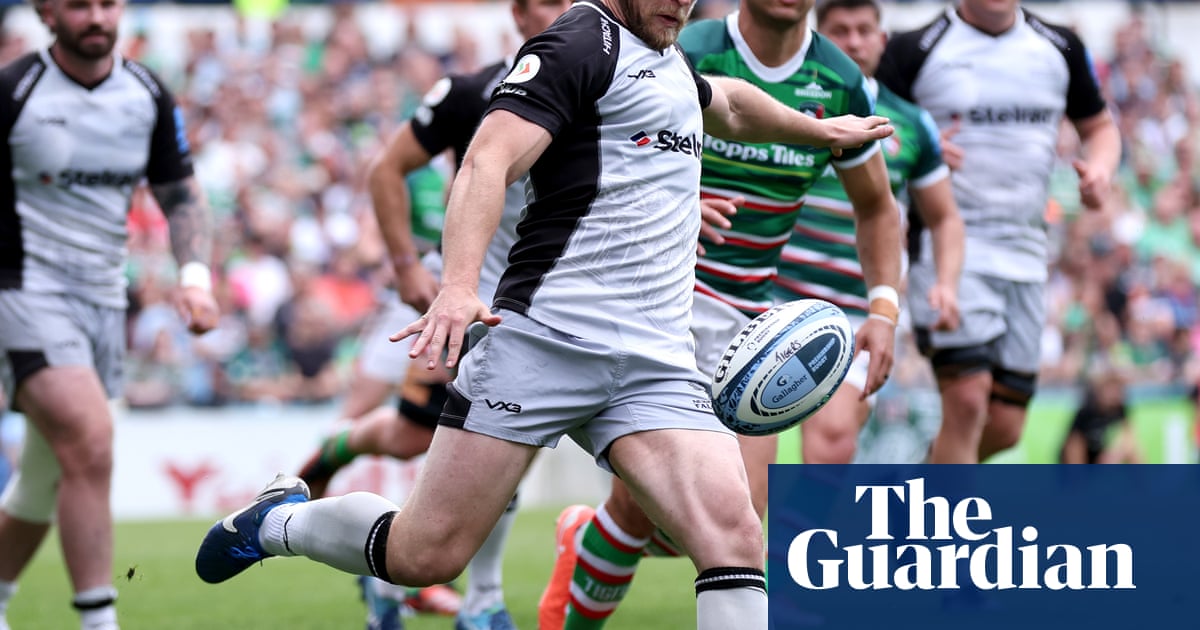Red Bull has agreed a deal to buyNewcastleFalcons which includes a commitment to keep the club in the city and will ensure the Premiership remains a 10-team competition next season.
Newcastle have been for sale for over a year, with owner Semore Kurdi no longer willing to fund multimillion-pound annual losses, leading to fears they could become the fourth Premiership club to go bust in the last two years after Wasps, Worcester and London Irish.
Such has been the concern for Newcastle’s future that the other Premiership clubs agreed in principle to provide a £4m loan to enable them to take part in the competition next season, with a nine-team top-flight not thought to be commercially viable.
Red Bull is understood to have reach an agreement to take over the cash-strapped club however, and take on their £39m debts. These include £14.5m in unpaid treasury loans taken out during the Covid-19 pandemic.
During negotiations with the Austrian energy drinks company the prospect of moving the club to the 26,000-capacity Darlington Arena 40 miles away was discussed, but the Guardian has been told that Red Bull’s takeover plan involves Newcastle staying at Kingston Park, which has been their home for the past 35 years.
Red Bull’s decision to stay in Newcastle is likely to be popular with the club’s longsuffering fans, who did not see them win a single match last season and only two this as Steve Diamond’s side finished bottom of the Premiership on both occasions. The company’s vision for the club is understood to be based on using their brands and marketing expertise to gain support from younger people in the city, with several campaigns planned to appeal to Newcastle’s student population.
Given the company’s footballing connections Red Bull is also expected to seek a close working relationship with Newcastle United. The club’s outgoing sporting director Paul Mitchell previously worked atRB Leipzig.
Newcastle will be Red Bull’s first rugby purchase, but the club aligns with it’s purchase model of snapping up underperforming sports teams with a business plan of transforming them into global brands. The company paid Ford just $1 to buy the failingFormula Oneteam, Jaguar Racing, in 2004 and have successfully transformed them into giants of the sport, with Red Bull Racing winning eight world drivers’ championships and six constructors’ titles in the last 15 years.
In addition to football clubs, RB Leipzig, Red Bull Salzburg and the New York Red Bulls, they also own 9.9% of Leeds United and are heavily involved in motor sport and winter sports.
Sign up toThe Breakdown
The latest rugby union news and analysis, plus all the week's action reviewed
after newsletter promotion
Attracting a new owner such as Red Bull is also a coup for Premiership Rugby, who are seeing much-needed signs of growth for the sport. Viewing figures for Premiership matches on TNT Sport are up 10% on last season before Saturday’s final between Bath and Leicester, with the increase 47% when the game directly follows a Premier League match.
In another significant boost TNT Sport last month agreed a new five-year deal giving it exclusive live rights for every Premiership match until 2031.
Red Bull and Newcastle declined to comment on the deal.
